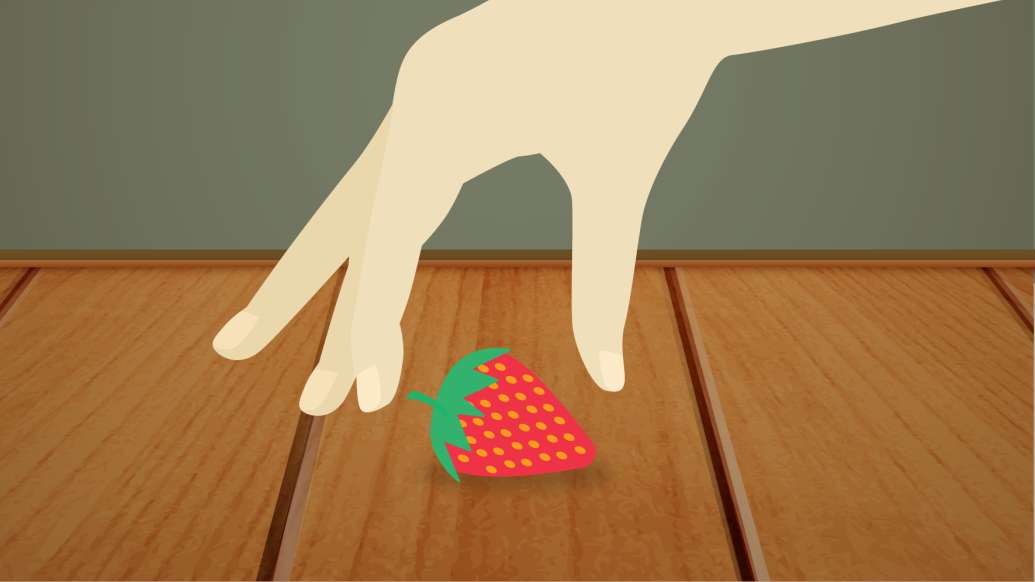Scientists recently examined the age-old question whether it is safe to eat something that fell on the floor.
7:00 AM
Author |

A piece of food slips from your fingers or fork, tumbling to the ground.
Nobody's looking. The floor doesn't seem dirty.
Should you eat it?
SEE ALSO: Don't Worry About the Antibacterial Soap Ban; Just Wash Properly
Many folks have long obeyed the "five-second rule" — that is, if an item touches the ground only momentarily, it's considered clean and therefore safe to consume.
Think again.
Such bite-sized castoffs ought to go straight to the trash can or compost pile, says Nicole Nomides, M.T., M.S., CIC, an infection preventionist at the University of Michigan Health System.
"As far as I'm concerned, the world is one big petri dish," she says. "I get why people do it; it's just human behavior. If people don't see the germs, they don't believe they're there."
The long-standing debate gained more attention in September after a Rutgers University study trumpeted a five-second-rule debunk.
Using tests that dropped various foods on different types of contaminated surfaces, researchers found germ transmission, under certain conditions, could occur in less than one second.
Nomides has long endorsed that theory.
"If there are germs present, it would take less than five seconds (to transfer)," she says. "Odds are, you're not going to get sick, but there are lots of variables. It's a gamble."
She spoke about some of the study's finer points.
Not all floors — or foods — are created equal: The Rutgers scientists grew a nonpathogenic salmonella strain and applied it to carpet, ceramic tile, stainless steel and wood. Carpet, they found, had far lower bacterial transmission rates than the other surfaces.
Germs were more prone to cling to moisture-rich foods such as watermelon. "A dry pretzel would be different than a sticky piece of candy," Nomides says.
You can't see what's really on the ground: Sure, a kitchen floor might appear squeaky clean, but outside of visible dirt or stains, its hazards are invisible to the naked eye. The risk also could vary based on which part of the home is in question.
SEE ALSO: 10 Ways to Stop a Bloody Nose
Regardless of space or circumstance: "You don't know what people have been tracking in from restrooms or outdoors or anywhere else; bacteria are microscopic," Nomides says. Family pets can be culprits, too.
Your hands are likely far dirtier than the floor: Enjoying finger foods? Your hands already could harbor influenza, staph, E. coli and other germs that cause illness, Nomides says, noting that doorknobs and other high-touch surfaces are prime breeding grounds.
Before any meal, handheld or otherwise, be sure to practice proper hand-washing to avoid transmitting icky bacteria onto whatever's going in your mouth. "It's the very best thing to do to keep yourself safe," she adds.
Other surfaces also harbor plenty of germs: Statistically, it's far more dangerous to drop food on a kitchen counter or cutting board that has been touched by raw meat, which can contain the diarrhea-inducing bacteria salmonella, among other things, than the floor.
To avoid cross-contamination, Nomides recommends keeping preparatory tools, cutting boards and bowls separate while cooking — one set for meat, the other for items such as vegetables. Thoroughly clean all items and surfaces after you eat.

Explore a variety of health care news & stories by visiting the Health Lab home page for more articles.

Department of Communication at Michigan Medicine
Want top health & research news weekly? Sign up for Health Lab’s newsletters today!





